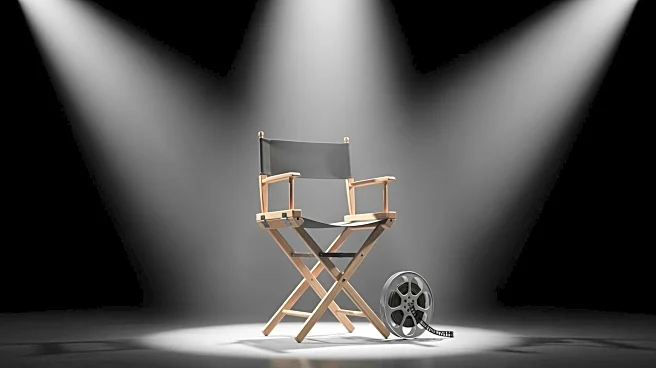What's Happening?
During the AFI Fest premiere on October 23, 2025, George Clooney made a remark, 'I think we should rob the Louvre,' which quickly became a viral sound bite. The comment was initially reported by Variety
on October 24, 2025, and has since circulated widely across news feeds and social media platforms. The line, intended as a cheeky joke, has sparked discussions about its impact on Clooney's reputation and the film's marketing strategy. The rapid spread of the clip has led to debates among fans, critics, and industry insiders about the appropriateness of the joke, especially in light of recent real-world theft headlines.
Why It's Important?
The viral nature of Clooney's comment highlights the power of media and social platforms in shaping public perception and influencing film marketing strategies. The remark has divided opinions, with some viewing it as humorous and others as tone-deaf. This incident underscores the challenges faced by public figures and film marketers in managing narratives and public relations in the digital age. The film's promotional plans may be affected, depending on whether the comment is perceived as a harmless joke or an insensitive remark. The situation illustrates the delicate balance between humor and sensitivity in public discourse.
What's Next?
The film's marketing team may need to address the viral clip to control the narrative and mitigate any potential backlash. This could involve issuing statements to clarify the intent behind the comment or leveraging the viral moment to boost interest in the film. The next few days will be crucial in determining whether the incident will fade away or continue to influence the film's promotional strategy. Stakeholders, including Clooney and the film's producers, will likely monitor public reactions and decide on the best course of action to manage the situation.
Beyond the Headlines
This incident raises broader questions about the role of humor in public discourse and the responsibilities of celebrities in shaping cultural narratives. It also highlights the impact of digital media in amplifying offhand comments and the potential consequences for public figures. The situation may prompt discussions about the ethical considerations of using humor in marketing and the importance of context in interpreting public statements.









